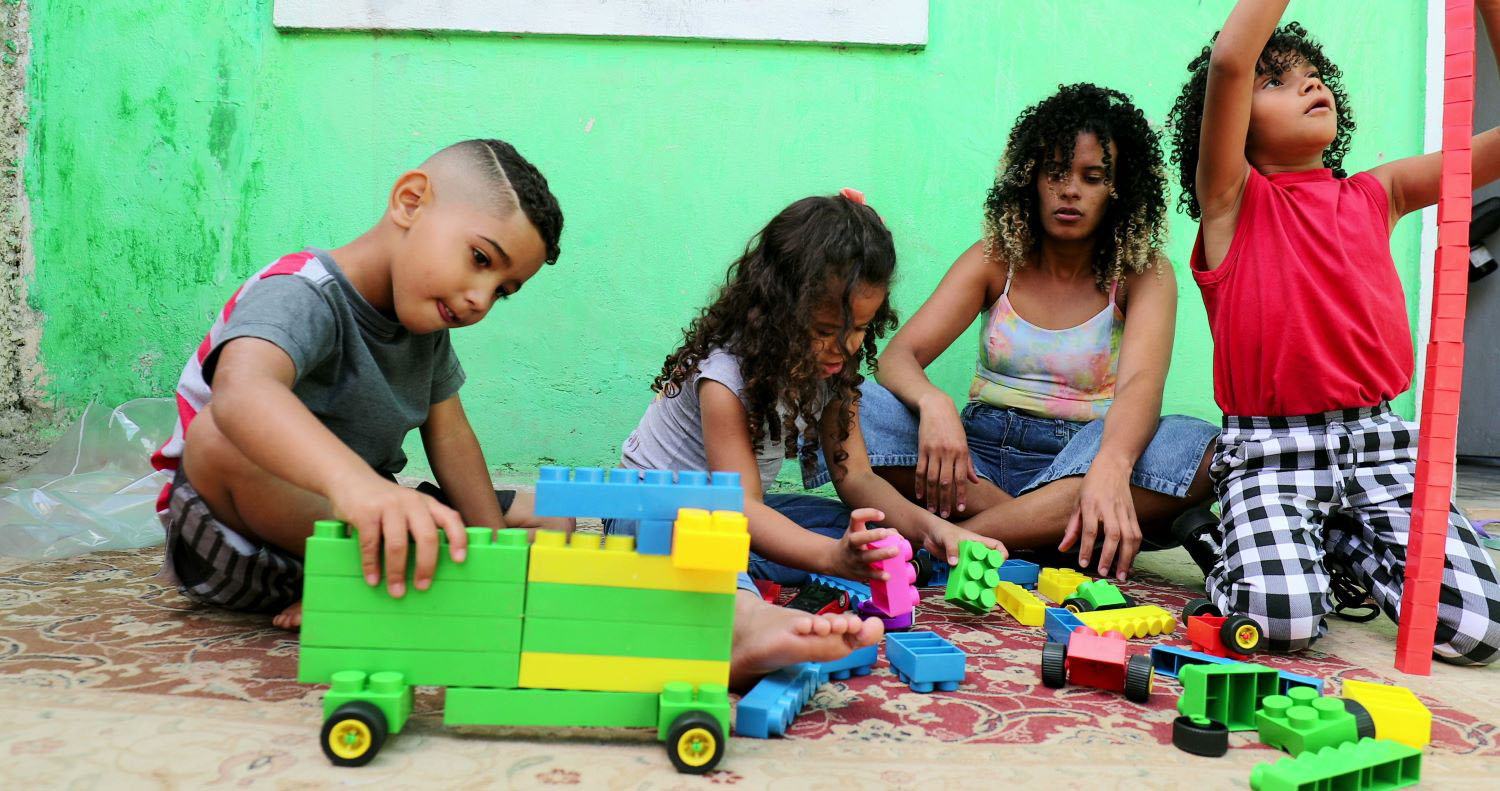Recommended

Event
Feminist researchers and advocates have been talking about the importance of recognizing, reducing, and redistributing women and girls’ unpaid care burden, including disproportionate childcare responsibilities, for years. In parallel, folks within the early childhood development (ECD) space have worked to demonstrate the importance of early years outcomes (health, nutrition, socioemotional development) on a child’s overall life trajectory. But unfortunately, these two groups have historically been siloed from one another. We think they can be stronger together.
So, last week at the fifth Birdsall House Conference on Women at CGD, an annual event dedicated to highlighting leading research on gender equality and women’s empowerment in the field of development economics, participants explored the intersection of ECD and women’s economic empowerment by bringing together the perspectives of researchers, advocates, and practitioners from both areas to learn from one another.
Thanks to many of you who joined us in person and online to hear about the latest research linking ECD and gender equality. For those not able to make it, not to worry! We’ve captured the highlights below.
Why did we choose this topic?
There’s been an explosion of research and policy work on early childhood in low- and middle-income countries over the last decade, but most of it is exclusively focused on identifying what is best for young children—without taking account of unintended impacts on mothers (or fathers, or older children). One of the themes that kept coming up during the conference was that interventions targeting women—for example, cash grants or mental health interventions—can have substantial impacts on children, while interventions targeting young children—for example, government preschools or home visits from child development specialists—can have significant impacts on mothers and other caregivers.
Researchers, practitioners, and policymakers from the gender and ECD sides need to carefully consider impacts of their studies, policies, and programs on all household members in order to benefit whole families and economies. We think bringing ECD and gender equality constituencies together can catalyze increased energy to drive policy change that will do just that.
What does the latest research tell us?
UC Berkeley professor Lia Fernald presented research examining the impacts of early childhood interventions on women’s mental health. She showed that a number of successful ECD interventions—from parenting education to water and sanitation programs—reduce maternal depression. In many cases, these impacts are quite large, large enough that they might explain all or most of the observed program impacts on child outcomes (i.e., because mothers’ mental health improves, outcomes for their children improve too). Improving women’s mental health is an important goal in its own right, but this new research suggests that it may also be one of the best ways to improve developmental outcomes among young children.
Yale Professor Orazio Attanasio discussed new tools that can be used to measure aspects of household decision-making that are typically unmeasurable. As one example, he discussed his work using lab-in-the-field methods to measure how much bargaining power women have in relation to their husbands when making household decisions, and linking women’s bargaining power to outcomes for children. New tools can also measure parents’ beliefs about their ability to impact their children’s lives. Both theory and empirical evidence demonstrate that parents’ beliefs and agency play an important role in shaping household investments in children; Attanasio’s talk brought researchers seeking to measure beliefs and agency up to the frontier of what is possible today, and highlighted cutting-edge approaches that may be available in the near future.
For a rundown of presentations by other Birdsall House panelists, see this tweet thread compiled by our colleagues Dave Evans and Amina Acosta.
What were our main takeaways?
- We can maximize the impact of existing research studies by building in questions focused on how interventions impact other members of households – mothers, fathers, big sisters, and grandmothers among them.
- We have more work to do on improving relevant measurement tools – How do we measure the quality of care? How do we effectively capture social norms change over time?
- We have gaps to fill in the evidence base about what works for vulnerable populations. The IFC has done an excellent job with Tackling Childcare to think about childcare solutions for women in the formal economy. This can be complemented by a research agenda that prioritizes an understanding of women working in the informal economy, given that the vast majority of women in low- and middle-income countries work informally in subsistence farming, as market traders and microentrepreneurs, and as domestic workers themselves, for example. What are their current childcare arrangements and what will work to reduce and redistribute their care responsibilities?
- We need a systematic mapping of best practice (i.e., public and/or private-sector solutions that have been effective in benefitting children, their mothers, and other household members) and how these models can be replicated/scaled.
What’s next?
Short term, we hope everyone who engaged with the Birdsall House Conference goes back to their day jobs and keeps the gender lens top of mind—whether that’s integrating a focus on women and girls as caregivers into ongoing or future research studies, advocacy campaigns, service delivery, or policymaking.
Longer-term, we need to keep collaboration between ECD and gender equality stakeholders going. We can look to models focused on other issues/sectors like RISE and GAGE to see how a community of practice with research, advocates, investors, and governments could come together to drive evidence-based policy change at the intersection of ECD and women’s agency. We hope that the Birdsall House Conference has helped to ignite increased interest in those linkages, and will be just the beginning of a longer-term, collaborative agenda.
Disclaimer
CGD blog posts reflect the views of the authors, drawing on prior research and experience in their areas of expertise. CGD is a nonpartisan, independent organization and does not take institutional positions.
Image credit for social media/web: Images of Empowerment





